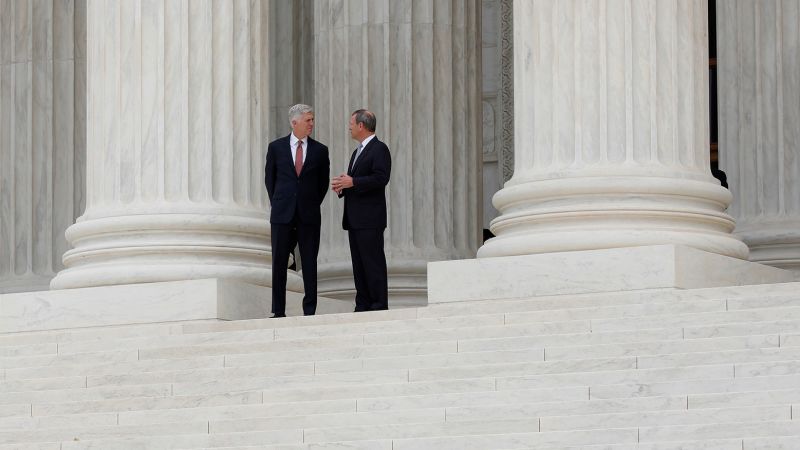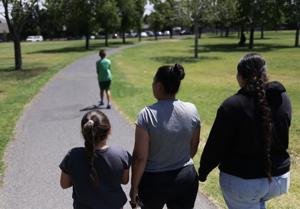
The Supreme Court’s decision to weigh in on transgender sports bans has thrust two conservative justices, Chief Justice John Roberts and Justice Neil Gorsuch, into the spotlight. This development follows their involvement in past cases concerning LGBTQ rights, where their opinions have been notably reserved. The court’s recent decision to uphold Tennessee’s ban on puberty blockers and hormone therapy for transgender youth left many questions unanswered, particularly regarding the broader implications for transgender rights.
For the second consecutive year, the high court will tackle a contentious legal dispute involving young transgender Americans, a group currently facing significant political backlash. The court has agreed to hear appeals in two pivotal cases challenging laws in West Virginia and Idaho that prohibit transgender girls and women from participating in women’s sports teams. These cases, including one initiated by a middle school student, present fundamental questions about discrimination and gender identity that the court will find difficult to sidestep.
Roberts and Gorsuch: Key Players in Transgender Rights
Only two justices, Roberts and Gorsuch, have authored majority opinions involving transgender Americans, yet they avoided addressing the sports cases in their recent ruling. According to Steve Vladeck, a Supreme Court analyst and Georgetown University Law Center professor, the upcoming decisions will heavily depend on where Roberts and Gorsuch stand. “Everything,” Vladeck predicts, “is going to come down to where Roberts and Gorsuch are.”
In the June 18 decision, the Supreme Court upheld Tennessee’s ban on certain transgender care, with an opinion written by Roberts. This opinion avoided determining whether the law discriminated against transgender youth, focusing instead on age and medical procedures as the basis for regulation. This approach sidestepped the complex question of whether the law violated the 14th Amendment’s equal protection clause by targeting transgender minors for different treatment.
Legal and Political Context
The Tennessee case’s limited scope contrasts with the broader issues at play in the upcoming sports cases. Suzanne Goldberg, a Columbia Law School professor, notes that the court’s previous decision avoided endorsing the notion that the law discriminated against transgender individuals. “The new cases squarely present the discrimination questions in ways that will be hard to avoid,” she said, emphasizing the importance of recognizing the impact on children striving to navigate school and life.
Justice Amy Coney Barrett, in a concurring opinion, opposed granting transgender status the same anti-discrimination protections as race and sex under the 14th Amendment. She highlighted other regulatory areas affected by transgender status, including access to restrooms and eligibility for sports teams. Justice Samuel Alito also expressed opposition to extending the reasoning of the landmark Bostock v. Clayton County decision, authored by Gorsuch, to constitutional cases.
The Role of Precedent and Bostock
Gorsuch’s silence in the Tennessee case was significant, given his authorship of the Bostock decision, which extended federal protections against sex discrimination to transgender workers. The Biden administration and transgender teenagers argued that this logic should apply to gender identity care bans. However, the court has not yet applied Bostock’s reasoning beyond the workplace, a point of contention drawing criticism from conservative circles.
“If they were in agreement that Tennessee’s law did not discriminate based on gender identity, I would assume that both of them would come to the same conclusion here when it comes to sports,” said John Bursch, a veteran Supreme Court litigator and senior counsel at the conservative Alliance Defending Freedom.
Implications and Future Considerations
The upcoming cases in West Virginia and Idaho will likely force the court to address broader questions about discrimination based on transgender status. In West Virginia, the “Save Women’s Sports Act” bans transgender women and girls from participating in public school sports teams consistent with their gender identity. Becky Pepper-Jackson, a sixth grader, challenged this law, alleging it violated federal law and the Constitution.
Meanwhile, in Idaho, Lindsay Hecox, a Boise State University freshman, sued against the state’s sports ban, arguing it violated the 14th Amendment’s equal protection clause. Both cases have seen lower courts rule in favor of the transgender athletes, setting the stage for a significant Supreme Court showdown.
State officials in West Virginia and Idaho have praised the court’s decision to take up the cases, viewing it as an opportunity to protect women’s sports. However, lawyers for the transgender athletes argue that these laws are discriminatory and harmful.
The Supreme Court is expected to hear arguments later this year or in early 2026, with a decision anticipated by the end of June. The outcomes of these cases could have far-reaching implications for transgender rights and the legal landscape surrounding gender identity in the United States.







